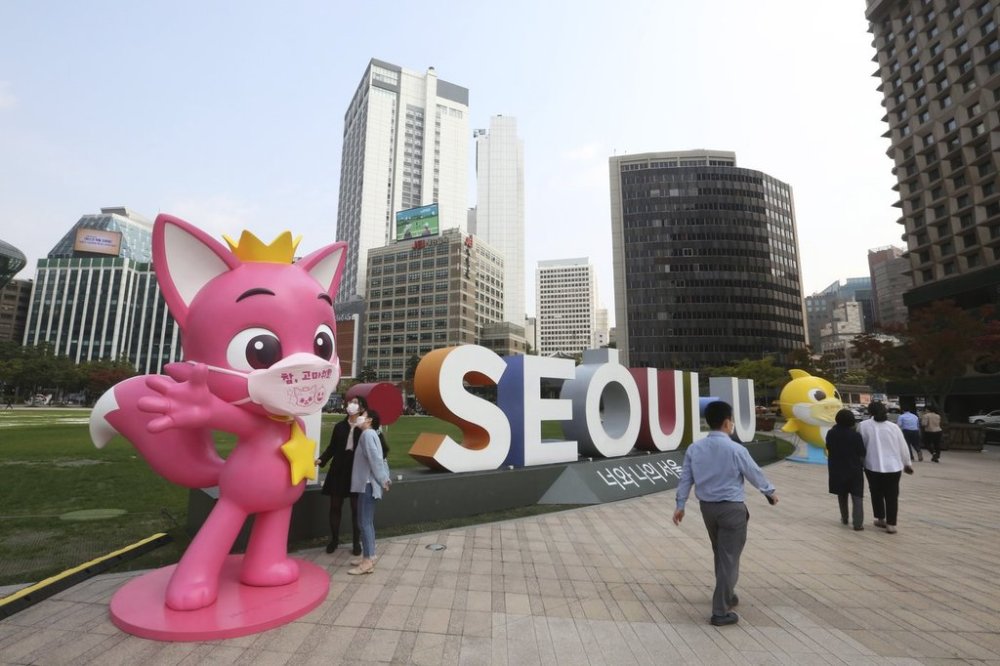South Korean Supreme Court dismisses US composer’s ‘Baby Shark’ copyright claim
Advertisement
Read this article for free:
or
Already have an account? Log in here »
To continue reading, please subscribe:
Monthly Digital Subscription
$0 for the first 4 weeks*
- Enjoy unlimited reading on winnipegfreepress.com
- Read the E-Edition, our digital replica newspaper
- Access News Break, our award-winning app
- Play interactive puzzles
*No charge for 4 weeks then price increases to the regular rate of $19.00 plus GST every four weeks. Offer available to new and qualified returning subscribers only. Cancel any time.
Monthly Digital Subscription
$4.75/week*
- Enjoy unlimited reading on winnipegfreepress.com
- Read the E-Edition, our digital replica newspaper
- Access News Break, our award-winning app
- Play interactive puzzles
*Billed as $19 plus GST every four weeks. Cancel any time.
To continue reading, please subscribe:
Add Free Press access to your Brandon Sun subscription for only an additional
$1 for the first 4 weeks*
*Your next subscription payment will increase by $1.00 and you will be charged $16.99 plus GST for four weeks. After four weeks, your payment will increase to $23.99 plus GST every four weeks.
Read unlimited articles for free today:
or
Already have an account? Log in here »
SEOUL, South Korea (AP) — South Korea’s Supreme Court rejected a 30 million won ($21,600) damage claim Thursday by an American composer who accused a South Korean kids content company of plagiarizing his version of “Baby Shark,” ending a six-year legal battle over the globally popular tune known for its catchy “doo doo doo doo doo doo” hook.
The top court upheld lower court rulings dating back to 2021 and 2023 that found no sufficient grounds to conclude the company, Pinkfong, infringed on Jonathan Wright’s copyright.
Wright, also known as Johnny Only, released his version in 2011, four years before Pinkfong’s, but both were based on a traditional melody popular for years at children’s summer camps in the United States.

The courts ruled Wright’s version did not differ enough from the original melody to qualify as an original creative work eligible for copyright protection, and that Pinkfong’s song had clear differences from Wright’s.
The Supreme Court said its ruling reaffirms the established legal principle on existing folk tunes as derivative work.
“The Supreme Court accepts the lower court’s finding that the plaintiff’s song did not involve substantial modifications to the folk tune related to the case to the extent that it could be regarded, by common social standards, as a separate work,” it said in a statement.
Pinkfong said in a statement to The Associated Press that the ruling confirmed its version of “Baby Shark” was based on a “traditional singalong chant” that was in the public domain. The company said it gave the tune a fresh twist by adding “an upbeat rhythm and catchy melody, turning it into the pop culture icon it is today.”
Chong Kyong-sok, Wright’s South Korean attorney, said he hadn’t received the full version of the court’s ruling yet, but called the outcome “a little disappointing.”
“Anyway, the matter is now settled,” he said. “It’s our work that came out first, so we can handle the licensing on our side and I guess we then each go our separate ways.”
Pinkfong’s Baby Shark became a global phenomenon after it was released on YouTube in 2015, with the original “Baby Shark Dance” video now exceeding 16 billion views and peaking at No. 32 on the Billboard Hot 100.
Baby Shark remains a crucial product for Pinkfong, which earned 45.1 billion won ($32.6 million) in revenue in the first half of 2025, according to its regulatory filing. The company has turned the five-member shark family — Baby Shark, Mama Shark, Papa Shark, Grandma Shark, and Grandpa Shark — into TV and Netflix shows, movies, smartphone apps and globally touring musicals.

